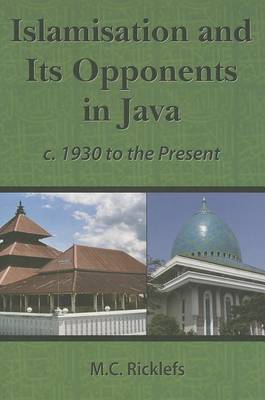The Javanese - one of the largest ethnic groups in the Islamic world - were once mostly 'nominal Muslims', with pious believers a minority and the majority seemingly resistant to Islam's call for greater piety. Over the tumultuous period analyzed here - from colonial ruler through Japanese occupation and Revolution to the chaotic democracy of the Sukarno period, the Soeharto regime's aspirant totalitarianism and the democratic period since - that society has changed profoundly to become an extraordinary example of the rising religiosity that marks the modern age.
Islamisation and Its Opponents in Java draws on a formidable body of sources, including interviews, archival documents and a vast range of published material, to situate the Javanese religious experience from the 1930s to the present day in its local political, social, cultural and religious settings. The concluding part of the author's monumental three-volume series assessing more than six centuries of the on-going Islamisation of Javanese, the study has considerable relevance for much wider contexts. Beliefs, or disbeliefs, about the supernatural are important in all societies, and the final section of the book, which considers the significance of Java's religious history in global contexts, shows how it exemplifies a profound contest of values in the universal human search for a better life.
- ISBN13 9780824837334
- Publish Date 30 September 2012
- Publish Status Active
- Publish Country US
- Imprint University of Hawai'i Press
- Format Paperback
- Pages 598
- Language English
